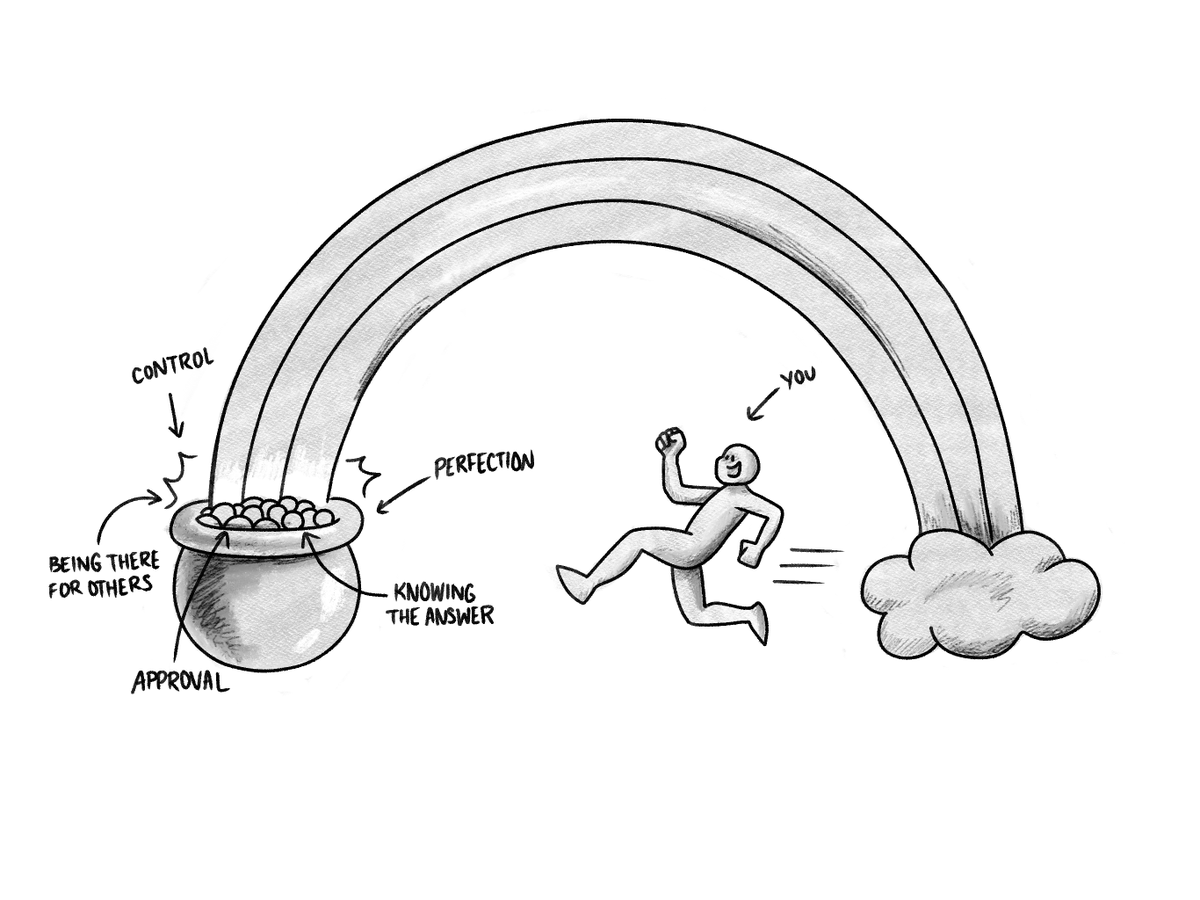John says 'perfect love casts out fear.' Perfect love displaces fear. And I think fear can displace our awareness and experience of perfect love. It cannot displace God's love, but it sure can displace our awareness of it.
1/
1/
Knowing you're in anxiety's grip is actually difficult, but you can learn to notice it when you are no longer aware of God's presence and God's love. It could be that your anxiety has displaced your awareness of God's love.
2/
2/
Signs of it:
- you start to think it is all on you/all on your shoulders.
- 'if it is to be, it is up to me.' An anxious statement if ever I heard one.
- An impending feeling of doom or hopelessness.
- Rigid thinking, either-or locked in thinking
- double binding.
3/
- you start to think it is all on you/all on your shoulders.
- 'if it is to be, it is up to me.' An anxious statement if ever I heard one.
- An impending feeling of doom or hopelessness.
- Rigid thinking, either-or locked in thinking
- double binding.
3/
Chronic Anxiety has a gospel.
'it is on you, there is not much you can do, you are not ______ enough, YOU are not enough, there are only bad options, try harder, do more of the same.'
Recognizing Chronic Anxiety's message helps you displace it with the actual Gospel.
4/
'it is on you, there is not much you can do, you are not ______ enough, YOU are not enough, there are only bad options, try harder, do more of the same.'
Recognizing Chronic Anxiety's message helps you displace it with the actual Gospel.
4/
Even though we have the Gospel, we often don't access it. We spend most of our time living by our false selves, not by the Gospel. I have been doing this work for decades and I still spend more time living for false self, than I do resting in my identity in Christ.
5/
5/
So it is essential for me to practice radical self kindness as spiritual transformation can be slow, slow, slow.
We think we should be further along by now.
That last sentence is yet another evidence of anxiety's grip.
Should, should, should.
6/
We think we should be further along by now.
That last sentence is yet another evidence of anxiety's grip.
Should, should, should.
6/
But what if you stopped 'shoulding all over yourself.'
What if you were at least as kind and patient with yourself as God is?
Perfect love displaces fear and Chronic Anxiety.
7/
What if you were at least as kind and patient with yourself as God is?
Perfect love displaces fear and Chronic Anxiety.
7/
Displacing it can be a learned spiritual practice.
1. Notice that I have lost touch with God's presence and love.
2. Name what I think I need that I don't really need.
3. Die to that.
8/
1. Notice that I have lost touch with God's presence and love.
2. Name what I think I need that I don't really need.
3. Die to that.
8/
4. Jesus died so I don't have to ______ anymore
5. What if I were at least as ______ to myself as God is.
6. Pull out your life giving list and do something on that list.
7. Pause and breath, breath, breath.
God is as close as the air you breath, in and out.
9/
5. What if I were at least as ______ to myself as God is.
6. Pull out your life giving list and do something on that list.
7. Pause and breath, breath, breath.
God is as close as the air you breath, in and out.
9/
This is a slow, learned spiritual discipline.
A couple of disclaimers:
- There are at least 5 types of anxiety. I am only talking 'chronic' anxiety which always shows up based on false belief or assumption.
10/
A couple of disclaimers:
- There are at least 5 types of anxiety. I am only talking 'chronic' anxiety which always shows up based on false belief or assumption.
10/
PTSD, GAD, Grief, Acute anxiety etc are all based on real triggers and require a different set of tools.
11/
11/
Finally, I rest most when I remember that not only is God with me, but God is AHEAD of me, already at work in the thing I am anxious about. God is there too. So when I walk into an anxious situation, I am walking into a situation where God is, and God is at work.
12/
12/
I don't have to initiate, or do, but rather, my first task is to do my best to pay attention to God. What is God doing? How can I join what God is doing?
Easier tweeted than done, but a worthy endeavor.
13/13
Easier tweeted than done, but a worthy endeavor.
13/13
• • •
Missing some Tweet in this thread? You can try to
force a refresh









